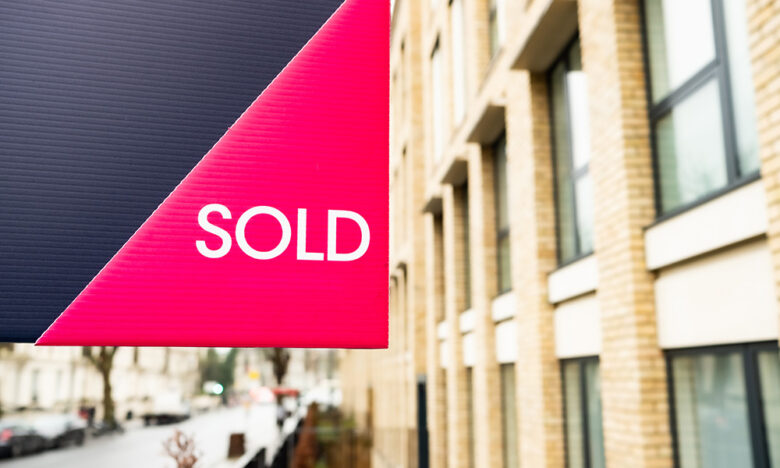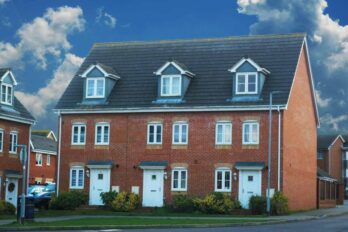
Is It Better to Buy a New or Resale Home Using Shared Ownership
With the average first-time buyer now having to spend eight years saving for a deposit and many only being able to secure a property with help from family, shared ownership can be a great way to get settled into a new home more quickly without stretching yourself financially. When buying a home on the open market, however, the process of purchasing a shared ownership home can be daunting, with eligibility criteria, mortgages and rent to consider, as well as confusion over what happens when you want to buy a bigger stake in your property or move on to somewhere new. So, how do you buy a shared ownership property and is it best to opt for a new build or a resale?
New build or resale?
So what’s the difference between a new build and a resale? New build homes are purpose-built properties that are usually part of a larger development or area regeneration. When you buy a new build, you’ll be the first to live in the home. On the other hand, resale properties are homes that a current owner bought through the shared ownership scheme and now wishes to sell.
Whichever option you choose, you’ll be required to secure a mortgage to buy the share agreed – you’ll usually need to find a deposit of 5-15% too. You’ll also pay a discounted rent on the remaining share – usually 15-20% below the market rate. You can buy more of your home in a process known as staircasing, reducing the rent you’ll need to pay.
First steps
Whether buying a new build or a resale shared ownership property, your first step is to check if you meet the eligibility criteria and, if you do, register with your local HomeBuy Agent, who the government has tasked to act as an intermediary between you, the housing provider and the property builders. Criteria will include having an income of less than £80,000 or a household income of less than £90,000 in London and being unable to afford a home on the open market. You must also demonstrate access to funds to cover the deposit, fees and other moving costs and have a good credit history. Each housing association may also have their own criteria, so check this once you’ve found the one you plan to use.
You can then start to look at the properties housing providers offer in your chosen area. If you find one that meets your needs, register your interest, and your details will be sent to the housing provider. You’ll then be able to arrange a viewing to see if the property is right for you. If it is, you’ll need to pay a reservation fee – expect to pay a deposit of around £200 for this.
How to buy a shared ownership new build
At this point, the process begins to differ if you’re buying a new build rather than a resale. If you meet the housing association’s criteria to buy a new build, you’ll be invited to attend a financial assessment to determine what share of the property you can afford to purchase. Once you have this information, you can look at your options in terms of mortgages and appoint a solicitor and surveyor to ensure the purchase can proceed.
After the financial interview, the housing provider will issue your solicitor a Memorandum of Sale, which summarises the details of your proposed purchase. Not all mortgage lenders will require this, but you will probably need it if you buy with a 5% or 10% deposit. As with a standard property purchase, you will then exchange contracts. At that point, you’re legally bound to buy the property and agree a completion date, when your mortgage lender will transfer the money to buy the property to your solicitor.
How to buy a resale property
The process for buying a resale property is essentially the same, although in this case, you would buy the previous owner’s share, either outright or by securing a mortgage. The housing association will own the remaining share, which you will pay a subsidised rent on. It’s worth noting that with a resale, you have to match the current owner’s share at least, so you won’t be required to attend a financial assessment. However, you can buy more of the property if you can afford to do so.
Remember that just like homes on the open market, resale shared ownership homes can vary significantly in terms of age, size, type and how well they’ve been maintained, so you should arrange an independent survey before committing to purchase so you can be confident everything is as it should be.
Pros and cons of resales and new builds
When buying a shared ownership home, new builds and resales come with advantages and things that may make you think twice. For example, a big plus of a new build is that there won’t be any chain, and as you’ll be dealing with a housing provider rather than the homeowner, there shouldn’t be any personal issues to contend with. New homes must also comply with all building regulations and will come with all new fixtures, fittings and appliances, so should be modern, reliable and require very little maintenance. However, if there are any delays with the build, you will have little choice but to wait. New builds also tend to be higher in price than resales. With a shared ownership property specifically, the rent on a new build home is often more expensive as this will be based on the percentage of the share you’re not purchasing; the service charge and ground rent on a new home also tends to be higher than those of older properties.
Having said this, there can be financial benefits to buying a new build. In addition to the lower upkeep costs, you should also benefit from warranties which can save money if anything goes wrong in your property further down the line. New build homes should also be more energy efficient with up-to-date heating systems and insulation – something that can lead to major cost savings these days.
While new builds may be modern, lived-in properties can have more of a sense of character and feel more homely and individual. They may, however, require more upkeep and DIY to keep them in order. A key benefit of buying a resale is that you can see exactly what you’re buying – unlike when you buy a new build off-plan. You’ll be able to see the property itself and investigate the rest of the development to ensure it meets your needs. And, of course, resales tend to be cheaper. This includes the rent aspect, as any rent increases will be set out in the lease and based on consumer price inflations, not on rising property prices.
Should I buy a new build or resale home through Shared Ownership?
While only you will know your exact circumstances and whether shared ownership is right for you, you can do several things to make the best decision.
Do the maths
With a shared ownership property, you need to make sure you can afford both the rent and the mortgage payments. The rent will likely increase each year, so ensure your budget has the flexibility to account for this. Also, spend time reading the lease before you agree to a purchase. This will outline your responsibility for repairing and maintaining your home and service charges, which must be factored into your budget.
Think about staircasing
As time passes, you may decide to buy a bigger share of your home, so keep this in mind when doing the numbers too. The cost of new shares will depend on the valuation of the property at the time (which you’ll have to pay for), and you can usually buy in 10% chunks.
Rules and Restrictions
Expect housing providers to have rules regarding subletting, so be sure a shared ownership property will work for you in the long term, as if your circumstances change, you won’t be able to rent the property out to someone else.
Consider the resale
When the time comes to move on, selling your shared ownership home is slightly different to selling on the open market. Often housing providers have waiting lists of people looking to buy, meaning it can be a relatively quick process, so don’t let worries about selling put you off.
Don’t rush in
Finally, just like when buying on the open market, it’s important not to rush into a purchase. Try to visit the property a couple of times, ideally at different times of the day, so you can see what the area’s like, maybe meet the neighbours and try to get a feel for the neighbourhood. Look at the property critically too – does it work for you now and for the next few years; is it the right size; is there enough storage; does it fit how you live and work?
The Novello Approach
Novello is here to help you with all aspects of buying, staircasing and selling a shared ownership property. From snagging lists for new builds so you can be sure everything is in perfect condition when you move in, to a range of HomeBuyer and Building Surveys that will fit every style and condition of home, we’re here to ensure you can buy with confidence at the right price. When the time comes to staircase or sell, our independent team of RICS-registered valuers will provide you with an accurate assessment of your home’s current market value. And, of course, as your trusted partner, we’ll always be on hand through the process to ensure you have all the information you need, to advise where needed, and to deliver the best possible outcome for you.
To find out more contact us today or book a free consultation.

